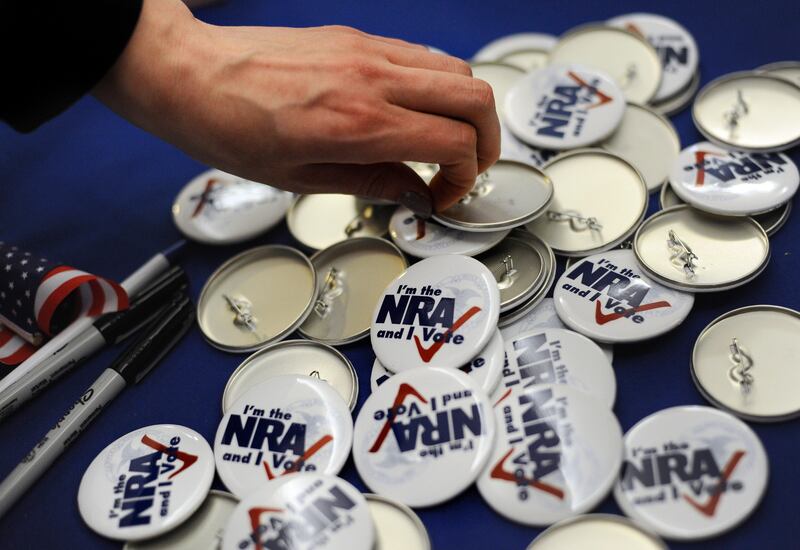The Supreme Court sided with the National Rifle Association in its ruling on Thursday.
After the Parkland high school shooting in 2018, the NRA filed a suit claiming a New York official with the department of financial services had advised insurance companies and banks to part ways with the NRA. The group claimed the former official, Maria Vullo, had violated the First Amendment. A federal appeals court ruled against the NRA and the group appealed the decision.
Justice Sonia Sotomayor authored the court’s opinion following the unanimous decision. Sotomayor said the NRA plausibly alleged Vullo violated the First Amendment. This means the suit may move forward.
“Vullo was free to criticize the NRA and pursue the conceded violations of New York insurance law,” wrote Sotomayor. “She could not wield her power, however, to threaten enforcement actions against DFS-regulated entities in order to punish or suppress the NRA’s gun promotion advocacy.”
Sotomayor said government officials are free to “forcefully” state their views to inspire others. “What she cannot do, however, is use the power of the state to punish or suppress disfavored expression.” She emphasized that “at the heart of the First Amendment’s Free Speech Clause is the recognition that viewpoint discrimination is uniquely harmful to a free and democratic society.”
“Ultimately, the critical takeaway is that the First Amendment prohibits government officials from wielding their power selectively to punish or suppress speech, directly or (as alleged here) through private intermediaries,” wrote Sotomayor.
Justices Ketanji Brown Jackson and Neal Gorsuch filed separate opinions concurring with Sotomayor.
Jackson said she wrote her opinion to distinguish between government coercion and First Amendment violations. “Coercion of a third party can be the means by which the government violates the First Amendment rights of another,” wrote Jackson. “But the fact of coercion, without more, does not state a First Amendment claim.”
Gorsuch’s opinion laid out how lower courts should approach these claims and emphasized settled legal principle. “Today we reaffirm a well-settled principle: ‘A government official cannot coerce a private party to punish or suppress disfavored speech on her behalf,’” wrote Gorsuch.
The American Civil Liberties Union represented the NRA in its claim before the court.
“While the ACLU stands in stark opposition to the NRA on many issues, it represented the group to safeguard the First Amendment rights of all advocacy organizations,” said the group in a press release.
“This is a landmark victory for the NRA and all who care about our First Amendment freedom,” William A. Brewer III, counsel for the NRA, said in a statement. “The opinion confirms what the NRA has known all along: New York government officials abused the power of their office to silence a political enemy. This is a victory for the NRA’s millions of members and the freedoms that define America.”
Alex Abdo, litigation director of the Knight First Amendment Institute at Columbia University, said the decision “reaffirms the bedrock First Amendment rule that the government may not coerce others to suppress constitutionally protected speech.”
“The ruling also appropriately recognizes that, while the government may not employ coercion, it must be allowed to attempt to persuade the public of its views. Our government could not govern effectively if it were not permitted to speak out, forcefully, on the topics of the day,” said Abdo in a statement.
Neal Katyal, who represented Vullo during oral arguments, said he believes she did not violate the First Amendment.
“As the Court’s decision makes clear, because of the posture of this case, this ruling required the court to treat the NRA’s untested allegations as true even though these allegations have no evidentiary merit,” Katyal told Politico. “Ms. Vullo did not violate anyone’s First Amendment rights. Ms. Vullo enforced the insurance law against admitted violations by insurance entities.”


